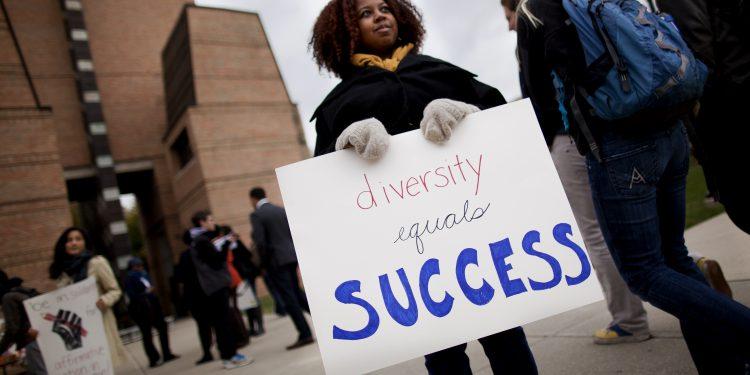The US Supreme Court has delivered a landmark ruling declaring that race can no longer be considered as a factor in university admissions, overturning decades-old affirmative action policies. Affirmative action, also known as positive discrimination, has been one of the most contentious issues in US education.
The concept of affirmative action first emerged in the 1960s as a measure to increase diversity. However, the court’s ruling has challenged its legality and implications. US President Joe Biden expressed strong disagreement with Thursday’s highly anticipated decision, calling for a new path forward that aligns with the law. He emphasized that discrimination still exists in America.
President Biden stated, “We cannot let this decision be the last word. Discrimination still exists in America.” He also referred to the ideological split among the nine justices, describing the court as “not a normal court.”
The ruling pertained to two cases involving admissions at Harvard University and the University of North Carolina (UNC). The court ruled 6-3 against UNC and 6-2 against Harvard.
The justices sided with an organization called Students for Fair Admissions, founded by legal activist Edward Blum. The group argued that Harvard’s admissions policy, which considered race, violated Title VI of the 1964 Civil Rights Act, which prohibits discrimination based on race, color, or national origin.
Chief Justice John Roberts, in his majority opinion, criticized the emphasis on an individual’s identity based on the color of their skin, stating, “Many universities have for too long wrongly concluded that the touchstone of an individual’s identity is not challenges bested, skills built, or lessons learned, but the color of their skin.”
The majority opinion acknowledged that UNC and Harvard’s policies were “well-intentioned” but highlighted that universities should not be prohibited from considering an applicant’s discussion of how race affects their life.
Justice Clarence Thomas, the nation’s second black justice and a conservative who has long called for an end to affirmative action, agreed with the ruling. He deemed such programs “patently unconstitutional,” stating that universities’ self-proclaimed righteousness does not give them the right to discriminate based on race.
Among the dissenting liberal justices was Ketanji Brown Jackson, the first black woman appointed to the court, who described the decision as “truly a tragedy for us all.” She criticized the majority’s “colorblindness for all” approach and referred to it as a superficial rule in an endemically segregated society.
Justice Sonia Sotomayor, another dissenting liberal justice, argued that the ruling solidified a superficial rule of colorblindness as a constitutional principle in a society plagued by segregation.
In response to the dissenting justices, Chief Justice Roberts contended that they had disregarded aspects of the law they disliked. He wrote, “Most troubling of all is what the dissent must make these omissions to defend: a judiciary that picks winners and losers based on the color of their skin.”
Edward Blum, the founder of Students for Fair Admission, celebrated the group’s success, calling it “the beginning of the restoration of the colorblind legal covenant that binds together our multi-racial, multi-ethnic nation.” He argued that discriminatory admission practices had undermined the integrity of the country’s civil rights laws.
The ruling has received mixed reactions. Yukong Zhao, president of the Asian American Coalition for Education, welcomed the decision, stating that it would preserve meritocracy, which he considered the bedrock of the American dream. On the other hand, critics, such as Angie Gabeau, the president of the Harvard Black Students Association, expressed discouragement and voiced concerns about students feeling obligated to focus on race in their applications.
Harvard’s president, Lawrence Bacow, affirmed that the institution would comply with the court’s decision while continuing to incorporate individuals from diverse backgrounds and perspectives. UNC Chancellor Kevin Guskiewicz acknowledged the outcome, noting that the university would review the decision and take necessary steps to comply with the law.
The ruling has significant implications for university admissions and has reignited the national conversation on affirmative action. It should be noted that nine US states already have bans on race-based college admissions in place, and California rejected a 2020 ballot measure to reinstate affirmative action, 24 years after its ban.
Former US President Donald Trump, the leading Republican candidate for the next election, praised the decision, calling it a “great day” for Americans with extraordinary abilities.
The Supreme Court’s decision has once again highlighted the ideological divide among justices and the ongoing debate over the role of race in admissions and society at large.

